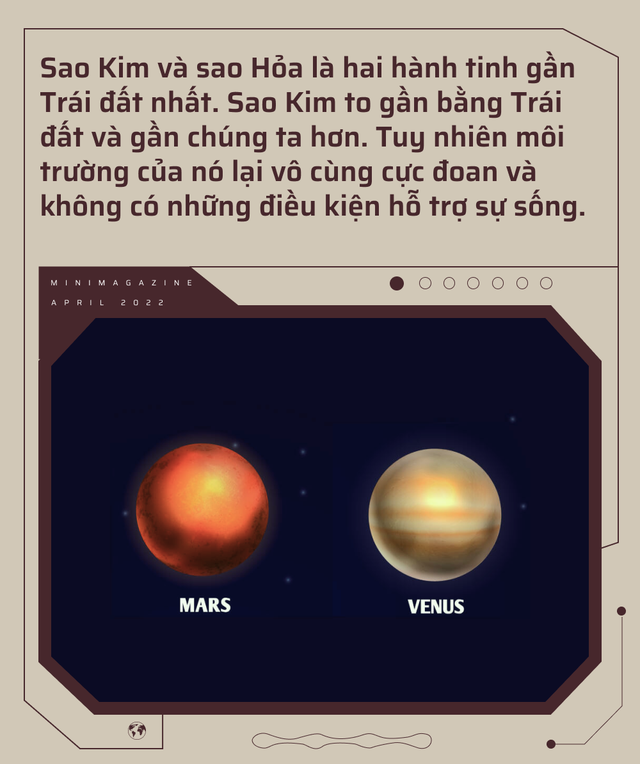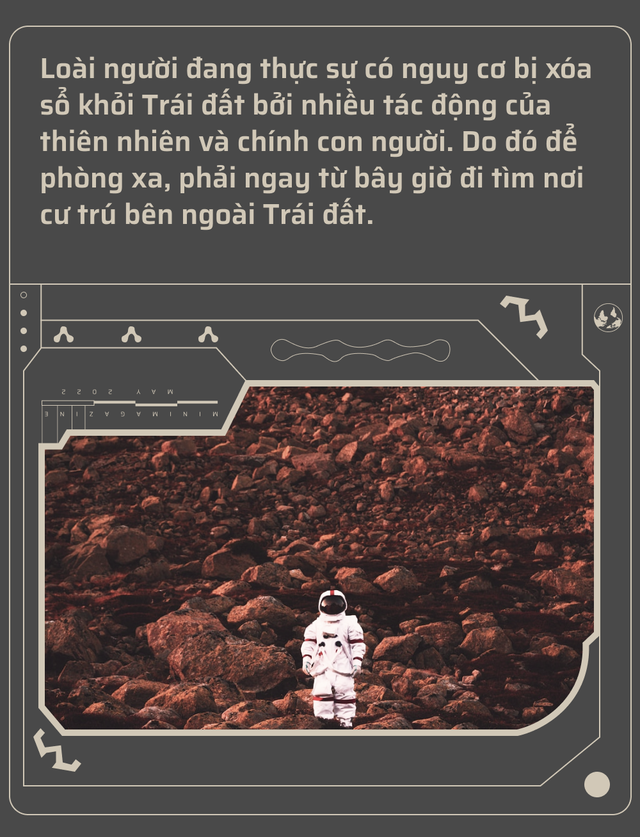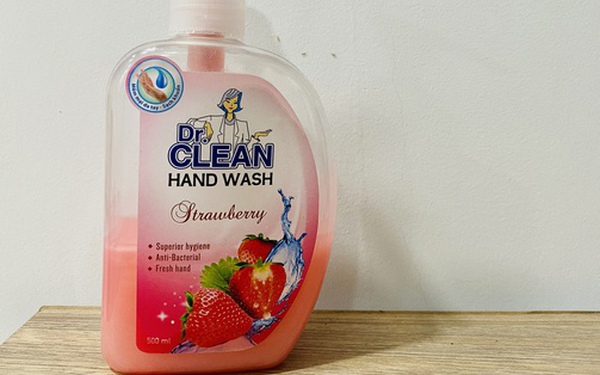Why do we keep choosing Mars as our new home?
Since the end of the US manned moon landing mission last century, humanity has never actually stepped outside of Earth’s atmosphere. But human spaceflight and exploration has not stopped, unmanned probes have penetrated every corner of the solar system and provided us with a general understanding of the conditions. of the solar system. In recent years, the topic of space travel with manned ships returning to the moon and landing on Mars has gradually come to light, and Mars immigration plans have also been raised. included on the agenda.

But many people still wonder: Why interstellar migration? Why should Mars be the first stop? We still have a lot of resources and many places on Earth that have not been used or cultivated. Even deserts, glaciers and other barren places on Earth are considered to have far more ideal living conditions than Mars. Spending this huge amount of money on transforming the Earth will likely be effective in feeding more people. Why did we send humans to Mars?
These questions often appear in forums and social networking sites of science and discovery communities. And today, let’s talk about this topic and try to clarify it.

Humans immigrate to alien planets not to explore and reclaim, but instead, the deeper purpose of this is to find a “refuge” for humanity. So what are we running from?
In fact, it can be seen that human society is developing very quickly, people’s awareness is also getting more and more advanced thanks to hand-held mobile devices, Internet surfing, airplanes, high-speed railways. ..
But when looking directly at the problems of human society, we need to pay attention to two points: First, our civilized and happy life today is due to the continuous progress of science and technology. bring. The second point is that the current stable and happy life is only a short-term view, this life can last in our time as well as the next few generations of descendants, but in the long run, it is very difficult. speak.

From the perspective of the relationship between the Earth and the sun, the Earth will no longer be a habitable planet in the future, so if we do not get rid of the Earth, how can we continue to live? living? How long is this time? It can be very long or it can be very short.
Another fact is that the destruction of the environment, the over-exploitation of resources by humans since industrialization, as well as the emission of greenhouse gases from burning fossil fuels, have caused the greenhouse effect of The Earth is getting worse day by day – the average temperature has increased by more than 1 degree Celsius compared to pre-industrialisation. It is believed that just 3 degrees Celsius increase in temperature, the self-regulating system of the Earth’s climate will collapse and unstoppable disasters will befall us.
Therefore, scientists have repeatedly issued dispatches as well as studies to warn that, if not controlled and improved, humanity will face the ecological catastrophe of extinction by the end of this century.
Therefore, humans also need to watch out for inevitable natural disasters on our own planet as well as in outer space, such as the drastic change of the sun and the collision of asteroids. planets into Earth, or all the things that humans can’t cope with. Currently, all the human population is in the same planet – Earth, once encountering the catastrophe of extinction, humanity may disappear forever in this universe.

In addition, the process of migrating to other planets is not something that can be completed overnight but can only be achieved through the efforts of several generations, even tens of generations, so if If we don’t make an effort now, the extinction of humanity will be more likely to become a reality. This is the fundamental reason why a number of visionary scientists, businessmen, and politicians are constantly exploring outer space and searching for human colonies.

Scientists have discovered eight planets in the solar system, as well as several dwarf planets and moons. When comparing the correlation of the planets in the solar system, besides Earth, Mars is the planet with the most suitable conditions for humans, this does not mean that the environment of Mars and Earth is the same. – the environment of the other six planets is much worse than that of Mars.
Mercury is so close to the sun and has a small mass and volume that it is a bare, hard rocky planet. Its rotation was locked by the sun’s tides, with one side always facing the sun and the other side facing the opposite direction. Therefore, the environment of this planet is very harsh, the temperature on the side facing the sun is highest at 428 degrees Celsius, and the temperature on the side facing the sun is as low as -193 degrees Celsius.

Venus is slightly smaller than Earth, equal to 88% of Earth’s volume and 81.6% of Earth’s mass. However, the rotational speed of Venus is not suitable for human life, the atmosphere is mainly made of the greenhouse gas carbon dioxide, leading to the surface temperature of Venus up to 500 degrees Celsius, the surface is pressurized. 90 times more intense than Earth, concentrated sulfuric acid rain is a regular occurrence, and there is neither water nor oxygen on this planet.
The remaining 4 planets are Jupiter, Saturn, Uranus and Neptune, which are all gas giants, the smallest Uranus has a mass 14.5 times the Earth, and Jupiter the largest. has a mass 318 times that of Earth. None of these gaseous planets have solid surfaces. Jupiter’s highest surface temperature is only -148 degrees Celsius, and Neptune’s lowest is also down to -200 degrees Celsius. Therefore, they are completely unsuitable for human settlement.
Compared to these six planets, the environment of Mars is much more temperate. Although Mars’ atmosphere is thinner than Earth’s, it’s still there; despite extreme temperatures, it is still acceptable; although there is no liquid water, there is plenty of frozen water in the ground and at the poles; the rotation period is 24 hours, 37 minutes and 22.7 seconds, similar to the Earth’s rotation period; the rotation period is 686,971 days, roughly equal to 2 Earth years; More importantly, because the axis of rotation has an inclination of 25.19 degrees, quite similar to the Earth’s 23.26 degrees, so at the equator, it forms the Tropic of Cancer, where the sun is directly illuminated and there is a change. change markedly according to the season of the year.

Thereby it can be seen that, except for Earth and Mars, the environment of the remaining 6 planets can be compared with hell.
Some have suggested that there are several moons in the solar system that also have conditions for human migration, such as Titan. However, further exploration and study revealed that its atmosphere is 98.66% nitrogen, the surface temperature is -179.15 degrees Celsius, there is no water, the lakes and seas at this moon are all liquid methane-type hydroxyl substances, unsuitable for human habitation.
Of course, the moon can also become a human settlement in the future, but the moon is too small and too close to the Earth, difficult to escape from the natural disasters that the Earth may encounter, so it cannot be effective. result of the intention to “put your eggs in two baskets”.
Mars also has a very unique condition, apart from the moon and Venus, it is the closest planet to Earth and it is only about 57 million km when at closest. Given the current human spaceflight capabilities, reaching Mars is already the limit of possibilities.

Our farthest unmanned probe is Voyager 1, which has been flying for more than 40 years and has only flown more than 23 billion kilometers. It is now flying out of the solar system at a speed of about 17 km/s. However, it would still take more than 17,000 years to break out of the solar system’s 1 light-year (9.47 trillion km) gravitational radius.
Therefore, the fact that humans fly out of the solar system at the present time is probably a utopia. But as long as humanity does not become extinct, in the future we will definitely come out of the solar system and into the deep space of the universe. This is because the sun will also be destroyed in 5 billion years (or maybe sooner), and then the solar system will be a place where life cannot exist.

Currently, although mankind has discovered thousands of exoplanets (extrasolar planets), dozens of terrestrial planets are in the habitable zone and may have liquid water suitable for humans. live, but humans can only look at them. Because of these factors, Mars has become the first choice for human settlement.
at Blogtuan.info – Source: cafebiz.vn – Read the original article here



